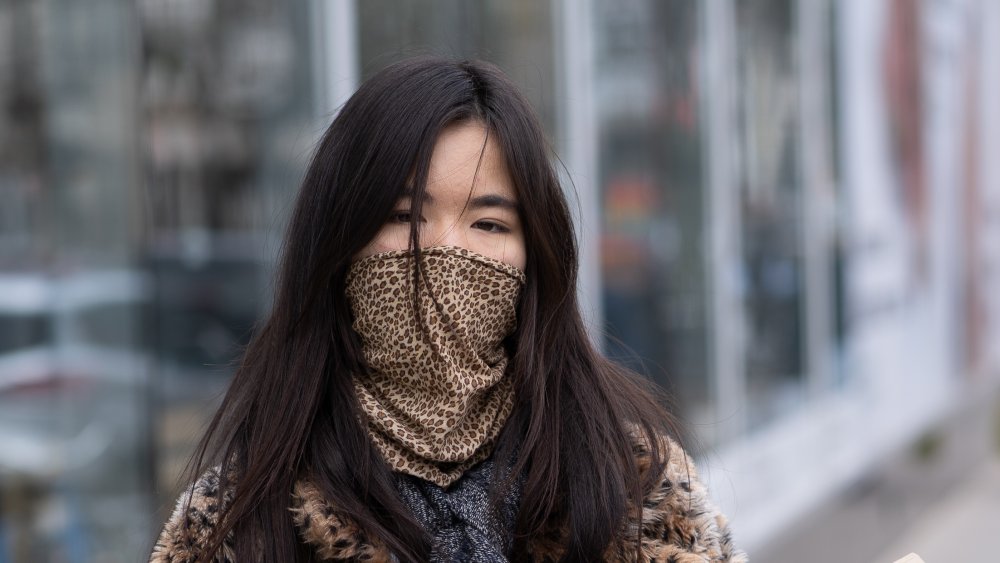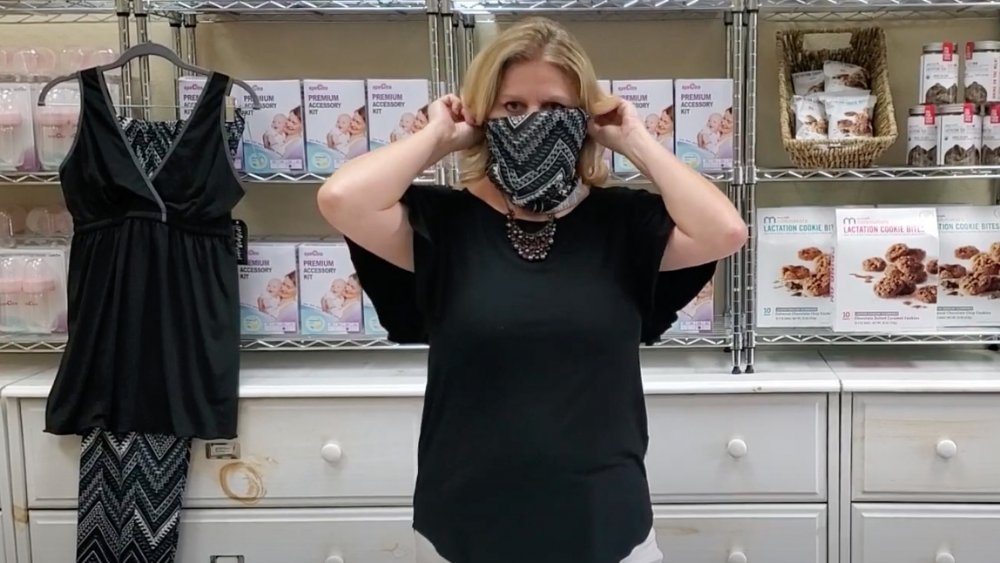Do Neck Gaiters Really Make Effective Face Masks?
The CDC can't be more clear on the need for face masks. They help prevent the spread of COVID-19. They protect people around us. Masks can reduce the spread of COVID-19 when they are used by people in public settings. And when they are used along with other preventive measures like social distancing, hand washing, and disinfecting surfaces, the spread of COVID-19 can be reduced.
But, we also know that face masks are not exactly comfortable, especially when there are weather-related factors to consider, or for extended periods of time. Given the choices we have on the market when it comes to face coverings, will neck gaiters do the trick, too? Doctors say it's likely, because they do a good job at covering your nose and mouth completely. "Those are great options, and for those people who have trouble with facial coverings being comfortable, or the mask or facial covering staying cool, I think those are very good options that provide good protection to the people around you," Alabama county health official Wesley Willeford tells WBRC.
Gaiters are considered to be a better option than a bandana, simply because the latter doesn't do a thorough enough job at covering the nose and mouth. And the best part about gaiters? If you're outdoorsy, you probably already have a few lying around.
Not all gaiters work the same way
As with all face coverings, not all gaiters are equally effective against the coronavirus. "Face coverings that are made of multiple weaves [i.e., higher thread counts] seem to block more respiratory droplets than those with lower thread counts," New Jersey-based infectious disease expert Jason Kessler tells USA Today. "In addition, there is some evidence that [face coverings] made of blended materials (cotton plus another material) may be somewhat more effective as well," he says.
Comfort is critical — because how effective your face covering might also depend on your ability to wear it for long periods of time, and by long, we mean when you are outside of what you might consider to be a safe environment. "We do know that tighter-fitting face masks have better aerosol filtration, but the most important thing is for people to find a mask that is comfortable that they can and will wear. A neck gaiter covering the nose and mouth would most likely be appropriate," Director of Infection Prevention at UNC Hospitals Emily Sickbert-Bennett says.
All this will come especially handy as we come close to the start of the fall semester, when students will be heading back into closer contact with their peers. If parents can find their teens gaiters that will make them feel cool, we could have found another important way to help all our loved ones as safe as possible.

